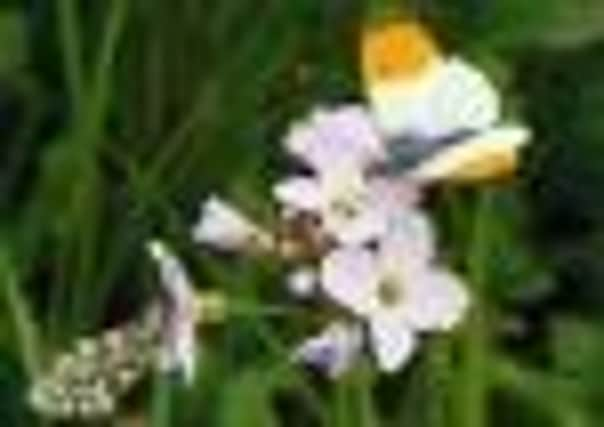Early take-off for this year’s butterflies


May is also the month for the Turkish carpet skipper. Well, that is my dream name for a species which has unfortunately been called the dingy skipper. It’s a species few people notice as it is localised mainly to chalk and limestone grasslands, old mining tips, industrial sites and old quarries. It is small, drab and moth-like, and generally overlooked. But look closely, and it has a beautiful patterning with a touch of bronzing when fresh. Populations seem to be struggling, although the last two sunny springs have helped it recover somewhat.
In some ways the remarkable spring weather this year has had a positive effect on all our early butterflies. Over-wintered species such as the brimstone, small tortoiseshell and peacock, had sunny days to complete their lives by breeding and laying eggs which will become our high summer butterflies when they emerge in July and August. As everything started early this year, we could well see some emergence in June rather than July.
Advertisement
Hide AdAdvertisement
Hide AdBut the lack of rain since March is already drying up the landscape, especially in areas with shallow soils. Old railway routes preserved as rights of way, disused brownfield sites and old quarries are wonderful places to find our less common species of butterfly and moth but at the moment the grassy swards which should burst forth with wild flowers over the coming weeks are parched and browned. Many plants are struggling to survive. Those swards should also be full of caterpillars eating their way to adulthood, but without a lush growth they could well die or turn into half-size butterflies which may struggle to breed. Caterpillars are also food for many of our birds. Smaller caterpillars mean more have to be caught to feed the young birds, leading to fewer butterflies being around later.
Recent news has been full of reports about the way the drought is affecting farm crops. The problem is affecting pretty well the whole of western Europe. I watch the situation in France particularly, as many of our regular immigrant butterflies and moths fly from North Africa or southern Europe across that country. If anything, France is suffering more than we are. Already 17 county authorities have introduced water restrictions and when some heavy showers first arrived in mid-April, many fell as hail and destroyed fruit blossoms. April temperatures there have already been in the higher 20s and even into the 30s. In recent days the French Meteorological Office rather surprisingly issued a longer range forecast suggesting a strong likelihood of record high temperatures between now and July and very little rain. In their view 2011 is likely to rank with 1976 and 2003!
On quite a few days recently winds have been blowing straight up through France bringing warmer temperatures here together with a dowsing of yellow Saharan sand which has been visible on many cars. Butterflies, moths and other insects can use these winds just like birds to hasten a journey northward and from about April 20th we saw the beginnings of a steady arrival of red admirals which are still arriving as I write. On the other hand the early April arrival of painted ladies in SE Yorkshire which corresponded to local bird reports of the likes of purple heron and bee eater as well as rare African dragonflies, now seems to have fizzled out. Could more be on their way?
Howard Frost is a recording co-ordinator for Butterfly Conservation Yorkshire. Contacted via www.yorkshirebutterflies.org.uk plus latest news of what is about.
*